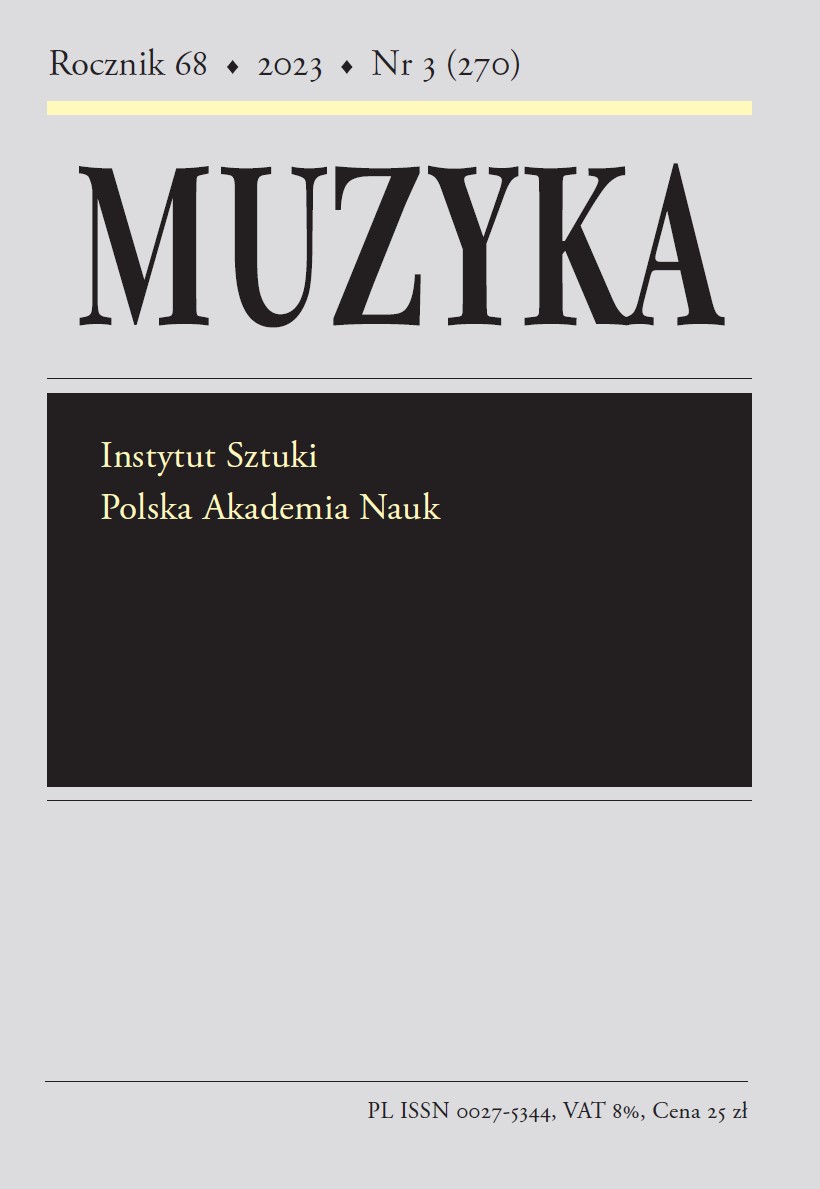Relokacja muzykaliów po II Wojnie Światowej – przypadek Pomorza Zachodniego
The Relocation of Music-Related Sources after the Second World War: The Case of West Pomerania
Author(s): Tomasz GórnySubject(s): Music
Published by: Instytut Sztuki Polskiej Akademii Nauk
Keywords: Preußische Staatsbibliothek;Szczecin;West Pomerania;protecting book collections;World War II;music-related sources;Maria Quirini
Summary/Abstract: The first section of this article describes how library collections were safeguarded in postwar Poland. On the basis of earlier findings (mainly by Ryszard Nowicki), three periods have been distinguished:– 1944–46: the legal framework was formed, along with the key terms applied during the book-and-archive protection campaign. A branch of the Ministry of Education was established in Kraków for the protection of book collections ‘abandoned or left behind’. During this period, work focused on physically protecting the many collections from perishing;– 1947–49: Centres for Protected Book Collections were established in Kraków, Toruń, Gdańsk, Szczecin, Katowice, Poznań and Wrocław, for the purpose of sorting the previously secured materials and assigning them to appropriate institutions throughout Poland;– 1950–55: most of the above-mentioned centres closed down, and the task of protecting and redistributing library collections was entrusted to the Centre for Protected Book Collections in Katowice.The second section of the article attempts to reconstruct how music-related sources were protected and relocated in Szczecin and West Pomerania between the end of the Second World War and the early 1950s. This study is based on archive research carried out in the Pomeranian Library in Szczecin, Central Archives of Modern Records (AAN) in Warsaw and Jagiellonian Library in Kraków. The principles behind the protecting and redistributing process are discussed, and the main places to which sheet music and books on music were sent are outlined. In addition, previously unknown materials concerning the fate of the Berlin Preußische Staatsbibliothek’s collections hidden in Gleźno (Hohenwalde) and Szczęsne (Billerbeck, now Nadarzyn) are analysed. Finally, the author points out the need for further research into both the music collections in the Pomeranian Library and the relocating of music sources, such as the cimelia transported from Berlin to Parsowo (Parsow), Mierzyn (Altmarrin) and Skoczów (Schötzow).
Journal: Muzyka
- Issue Year: 68/2023
- Issue No: 3
- Page Range: 77-97
- Page Count: 21
- Language: Polish

